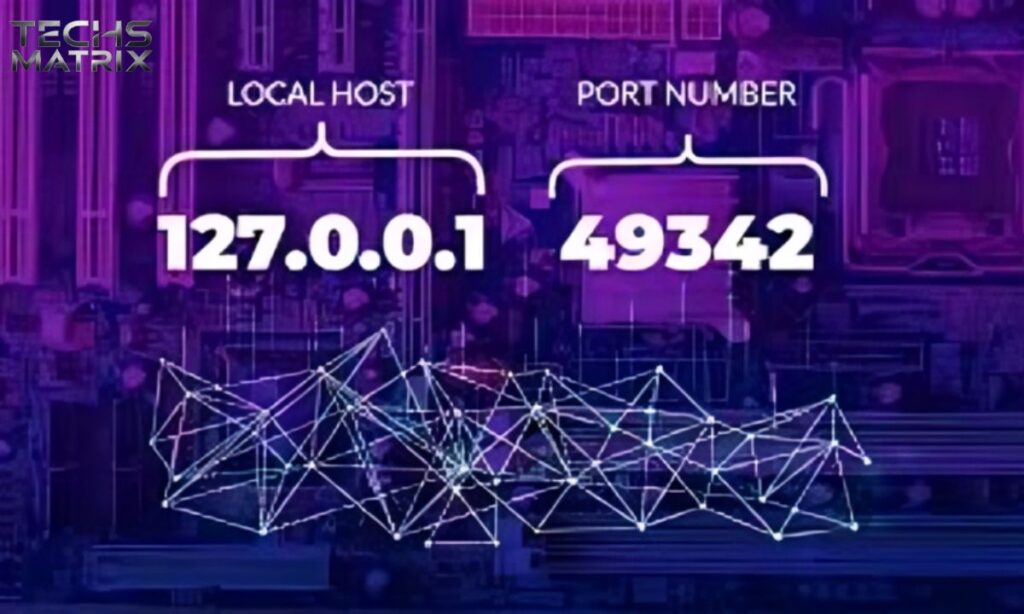The Mystery of 127.0.0.1:49342 explores the significance of the localhost address 127.0.0.1 and its specific port 49342 in software development. This guide highlights how developers utilize localhost for testing and debugging applications in a secure environment. By allowing self-communication within a machine, localhost enables efficient development without impacting live systems.
Understanding localhost and its applications is essential for modern developers. It provides a foundation for running web servers, APIs, and other services locally, ensuring that applications function correctly before deployment. This practice enhances productivity and application quality.
Understanding IP Addresses and Their Types
IP addresses are numerical labels assigned to devices on a network. They play a crucial role in identifying devices. There are two main types of IP addresses: IPv4 and IPv6.
IPv4 addresses consist of four decimal numbers separated by dots. Each number ranges from 0 to 255. An example of an IPv4 address is 192.168.1.1. This format has been in use since the early days of the internet.
IPv6 addresses, on the other hand, are longer. They consist of eight groups of hexadecimal numbers, separated by colons. An example of an IPv6 address is 2001:0db8:85a3:0000:0000:8a2e:0370:7334. The introduction of IPv6 was necessary due to the exhaustion of available IPv4 addresses.
The Significance of 127.0.0.1: Localhost Explained
The IP address 127.0.0.1 is known as the loopback address. It refers to the local machine itself. When you send data to 127.0.0.1, it stays within your computer. This allows for self-communication.
Localhost is simply a human-readable name for 127.0.0.1. Developers frequently use localhost for testing applications. This setup ensures that changes can be made without affecting live environments.
Using localhost allows developers to isolate issues. They can run servers and clients on the same machine. This approach is particularly beneficial in the development phase.
Key Characteristics of Localhost
| Feature | Description |
|---|---|
| IP Address | 127.0.0.1 |
| Common Name | localhost |
| Purpose | Self-communication for testing |
| Port Flexibility | Supports various ports for different services |
| Isolation | Provides a secure environment for application testing |
Understanding Ports and Their Role
Ports are integral to network communication. They serve as entry points for data. Each service on a computer uses a specific port number. For example, web servers typically use port 80 for HTTP traffic.
Other applications may utilize different ports. In this context, 49342 is a designated port for specific services. Ports allow multiple applications to run on a single IP address. Each service listens on its own port.
This separation helps manage data traffic effectively. The use of ports enhances security. Each port can be monitored and controlled individually. This way, unauthorized access can be restricted.
Practical Applications of 127.0.0.1:49342

Using 127.0.0.1:49342 enables developers to perform various tasks locally. This address is essential in several scenarios. One common application is web development. Developers can run their web apps on this address to test functionality.
This local testing helps identify bugs before deployment. Another application is API development. APIs can be tested on localhost without impacting the production environment. This process ensures that APIs function correctly before they are released.
Testing and Debugging with 127.0.0.1:49342
Testing applications locally is a best practice for developers. It allows for quick iterations and immediate feedback. When using 127.0.0.1:49342, developers can run multiple tests. They can simulate different scenarios without external interference.
This method saves time and resources. Debugging tools can also be utilized effectively. Developers can monitor network traffic and application behavior. This visibility helps in identifying problems promptly.
The advantage of local testing is significant. It reduces the likelihood of bugs in production. Developers have complete control over the testing environment.
Read This Blog: The Rise of Luxury FintechZoom: A Comprehensive Guide
Networking Basics
Networking refers to the practice of connecting computers and devices. Understanding basic networking concepts is crucial for developers. An IP address identifies a device on a network. Each device must have a unique address.
This uniqueness ensures proper communication between devices. A subnet divides a larger network into smaller, manageable parts. This division improves organization and performance.
Routers forward data between different networks. Understanding these concepts lays the foundation for effective networking. Developers can build and maintain robust systems.
Security Considerations with Ports and Localhost
Security is a critical aspect of working with localhost. Ports can be vulnerable to various threats. When using 127.0.0.1:49342, it is essential to limit open ports. Only necessary ports should be active.
This practice reduces the attack surface. Implementing firewalls is another effective security measure. Firewalls can block unauthorized access to specific ports. Regular monitoring of network traffic helps identify potential threats.
Developers should stay updated on security practices. Regularly reviewing configurations ensures that vulnerabilities are addressed promptly.
Advanced Networking
Advanced networking involves complex configurations and setups. This includes managing multiple devices and virtual networks. Techniques such as Virtual Private Networks (VPNs) provide secure remote access. VPNs encrypt data transmitted over the internet.
This ensures privacy and security for users. Network Address Translation (NAT) allows multiple devices to share a single public IP address. This technique conserves IP addresses and enhances security.
Dynamic Host Configuration Protocol (DHCP) automatically assigns IP addresses to devices. This automation simplifies network management. Understanding these advanced networking concepts is vital for developers.
Troubleshooting Network Issues with 127.0.0.1:49342

Network issues can occur when working with 127.0.0.1:49342. Identifying and resolving these problems is essential. One common issue is when the service is not running. Developers must ensure that the application is active.
If the service is down, connections will fail. Another potential problem is port conflicts. If another application is using port 49342, it will prevent connections. Checking for active services on this port can help identify conflicts.
Firewall settings may also block access to the port. Developers should verify that the firewall allows traffic through 49342. Adjusting these settings can resolve connectivity issues.
Virtualization and Localhost
Virtualization enables multiple operating systems to run on a single machine. This capability is beneficial for testing and development. Using virtualization, developers can create isolated environments.
Each environment can have its own configuration and set of applications. This isolation allows for comprehensive testing. Virtualization maximizes hardware usage.
It enables developers to run various applications without needing additional physical machines. This efficiency is particularly valuable in development environments.
The Evolution of IP Addressing: IPv4 vs. IPv6
The evolution of IP addressing is a significant development in networking. IPv4 has been widely used for decades. However, it has limitations.
IPv4 uses a 32-bit address space. This format allows for about 4.3 billion unique addresses. As the internet grew, this number became insufficient.
IPv6 was introduced to address these limitations. It uses a 128-bit address space. This expansion allows for an almost limitless number of unique addresses.
Developing Applications with 127.0.0.1:49342 in Mind
When developing applications, using 127.0.0.1:49342 for local testing is crucial. This approach helps ensure functionality before deployment.
Developers should configure their applications to utilize localhost. This configuration streamlines the testing process. It allows for quick iterations and adjustments.
Thorough testing is essential before moving to production. Developers should conduct various tests to verify application behavior. Documentation of the development process is also important for future reference.
Networking Protocols: TCP vs. UDP
Networking protocols dictate how data is transmitted over a network. The two primary protocols are TCP and UDP.
TCP, or Transmission Control Protocol, is reliable and connection-oriented. It ensures that data is delivered in the correct order. This reliability is crucial for applications that require accurate data transfer.
UDP, or User Datagram Protocol, is faster but less reliable. It does not guarantee data delivery or order. UDP is often used for applications where speed is more critical than reliability, such as streaming.
Application Servers and 127.0.0.1:49342

Application servers utilize localhost for various functionalities. They serve as a platform for running applications and managing data.
Using 127.0.0.1:49342, application servers can host web applications. This setup allows developers to run and test their applications locally. Application servers also handle data processing. They can manage requests from clients and return responses.
This functionality is essential for building scalable applications. Middleware components can also operate on localhost. These components facilitate communication between different applications. This capability enhances the overall architecture of an application.
Read This Blog: Ultimate Guide to Sheds in London: Choosing the Perfect One for Your Home
Cloud Computing and Localhost
Cloud computing is transforming how applications are developed and deployed. However, local testing remains relevant even in cloud environments. Using 127.0.0.1:49342, developers can test applications before deploying to the cloud.
This testing ensures that applications function correctly in a controlled environment. Cloud services offer scalability and flexibility. They allow developers to expand their applications as needed.
However, local testing provides immediate feedback and control. Integrating cloud applications with local setups is essential. This integration ensures smooth deployment and minimizes potential issues.
IoT and Localhost
The Internet of Things (IoT) also benefits from the use of localhost. IoT devices can communicate with local servers for testing and data collection. Using 127.0.0.1, developers can test IoT devices in a safe environment.
This testing helps ensure that devices operate correctly before deployment. Data collection from local devices can provide valuable insights. Developers can analyze the performance of IoT devices without impacting live systems.
Ensuring connectivity between IoT devices and local servers is crucial. This connectivity allows for better integration and functionality.
Frequently Asked Questions
What is 127.0.0.1?
127.0.0.1 is the loopback address used for local communication within a computer.
Why is localhost important for developers?
Using localhost allows developers to test applications without affecting live environments.
What is port 49342 used for?
Port 49342 can be utilized for various local services and applications during development.
How do I troubleshoot localhost issues?
Check if the service is running, verify port conflicts, and ensure firewall settings allow traffic.
Is localhost secure for testing?
Yes, localhost provides a secure environment for testing applications without external exposure.
Conclusion
In conclusion, 127.0.0.1:49342 is a vital tool for developers. Understanding its significance and applications enhances development processes. This guide has explored the role of localhost in testing, debugging, and networking. By mastering these concepts, developers can improve their workflow and deliver high-quality applications.
The knowledge of IP addresses, ports, and security considerations is essential in today’s digital landscape. Embracing these practices will lead to more efficient and effective development.

Sallas: Tech-savvy professional with 5 years in the industry. Skilled in software development, cloud computing, and AI. Known for innovative solutions and teamwork.








